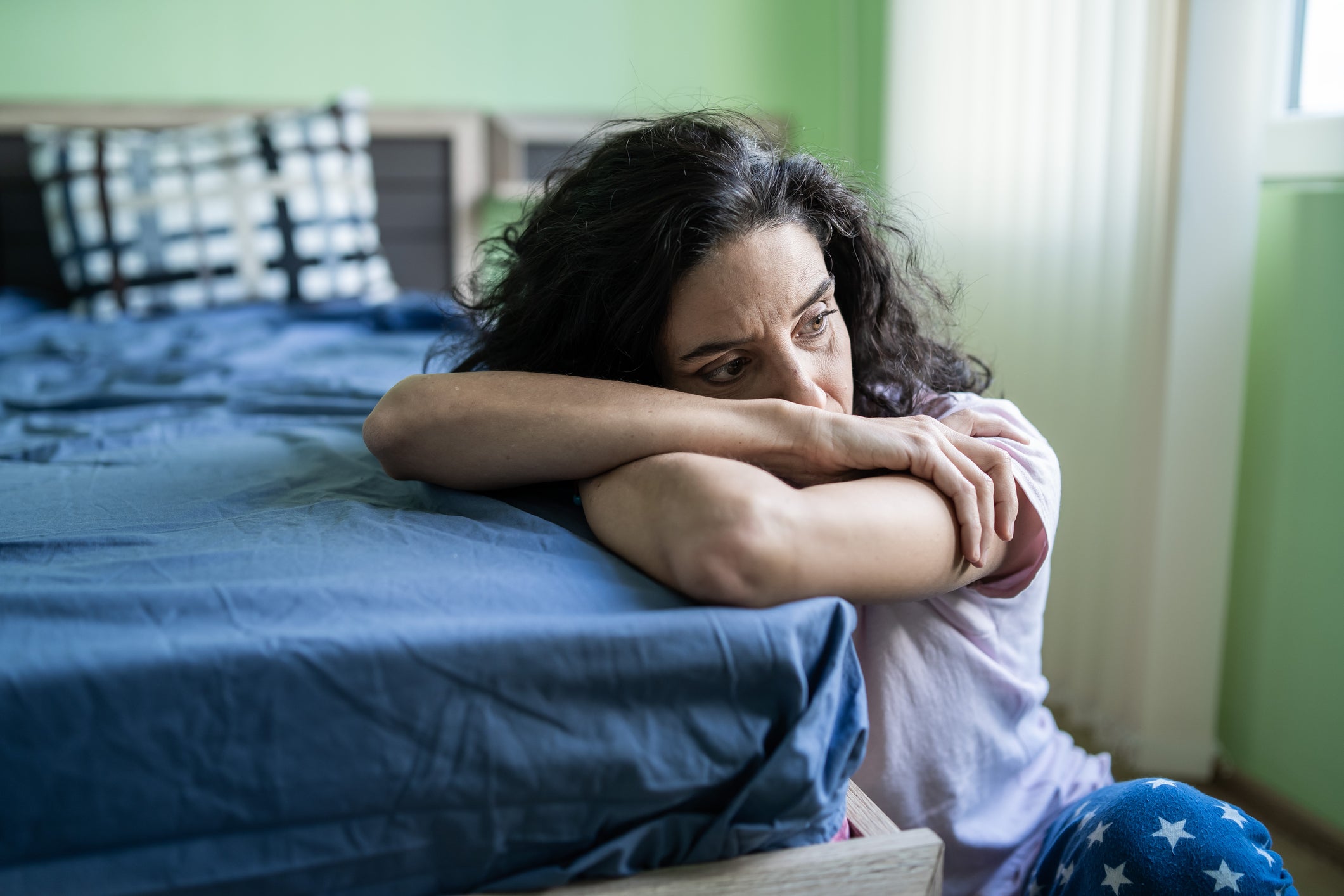Long Covid patients almost twice as likely to be depressed and anxious, says ONS
Women, disabled adults and those aged between 30 and 49 were more likely to report having had long Covid

Your support helps us to tell the story
From reproductive rights to climate change to Big Tech, The Independent is on the ground when the story is developing. Whether it's investigating the financials of Elon Musk's pro-Trump PAC or producing our latest documentary, 'The A Word', which shines a light on the American women fighting for reproductive rights, we know how important it is to parse out the facts from the messaging.
At such a critical moment in US history, we need reporters on the ground. Your donation allows us to keep sending journalists to speak to both sides of the story.
The Independent is trusted by Americans across the entire political spectrum. And unlike many other quality news outlets, we choose not to lock Americans out of our reporting and analysis with paywalls. We believe quality journalism should be available to everyone, paid for by those who can afford it.
Your support makes all the difference.People who have had – or believed to have had – long Covid are almost twice as likely to have experienced depression compared with those who have not contracted the virus, according to new figures published by the Office for National Statistics (ONS).
Polling by the ONS between 7 April and 13 June reveals that 6.2 per cent of adults reported that they may have experienced long Covid.
Of these, nearly a third (30 per cent) said they had experienced moderate to severe depressive symptoms in the last two weeks, compared to 16 per cent of respondents who did not believe they had contracted the disease.
And a quarter (25 per cent) said they had experienced some form of anxiety, compared with 15 per cent of those who had not been directly affected by Covid.
The ONS warned that it was not possible to infer cause-and-effect relationships from the results, however, adding that a person’s circumstances could relate to factors such as age, disability status or deprivation levels.
The government body surveyed nearly 40,000 people aged 16 years and older in Great Britain to produce their findings, with 3.6 per cent stating they had suffered long Covid, while 2.6 per cent said they were unsure.
Women, disabled adults, those aged between 30 and 49, and those living in the most deprived parts of England were more likely to say they may have had long Covid.
Of these, over half (57 per cent) said that long Covid had negatively affected their wellbeing, while 39 per cent said their ability to exercise had been affected.
And of those who were certain they had experienced long Covid, 72 per cent said their wellbeing had been negatively affected, and 48 per cent said the same about their ability to exercise.
Tim Vizard, ONS principal research officer, said: “Although no single definition of long Covid exists it is likely it affects people in different ways and research is already showing the potential impacts on physical health.
“Today's research highlights the potential for people's mental health, well-being or work to be impacted by long Covid.
“We've found more people who may have had long Covid report negative impacts, however more work is needed to disentangle the effects of long Covid from a variety of factors such as age, sex or disability.”
Liberal Democrat MP Layla Moran, chairwoman of the All-Party Parliamentary Group on Coronavirus, said: “These striking figures highlight the immense impact long Covid is having on people's day-to-day lives, and the total inadequacy of the Government's response so far.
“An urgent strategy is needed to respond to the threat posed by long Covid and provide support to the thousands of people suffering from the long-term consequences of this pandemic.”
The news follows the warning by epidemiologist Neil Ferguson that around half a million people can be expected to develop long Covid during the current wave of coronavirus.
The Imperial College London scientist said it was “almost inevitable” that daily infection rates would reach a record 100,000 within weeks, adding that the pandemic could spike at more than 200,000 positive cases a day.
Join our commenting forum
Join thought-provoking conversations, follow other Independent readers and see their replies
Comments